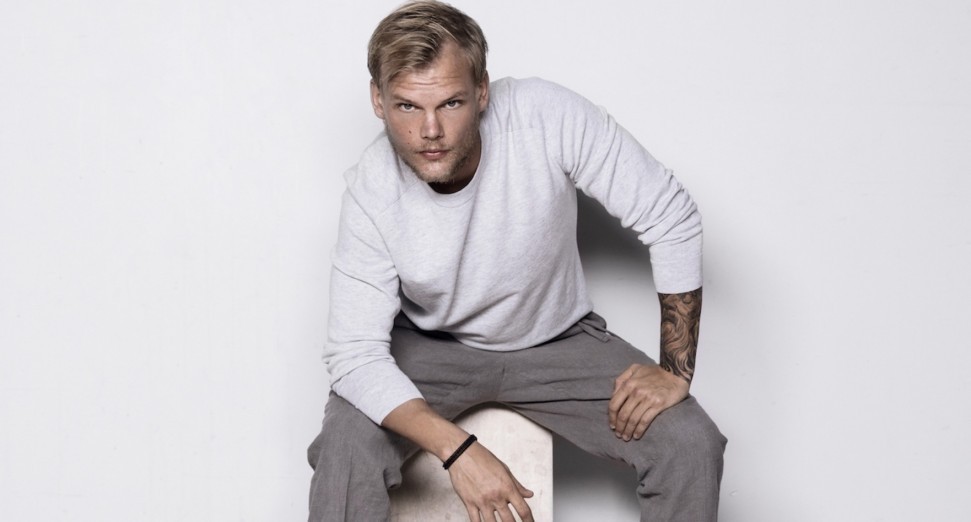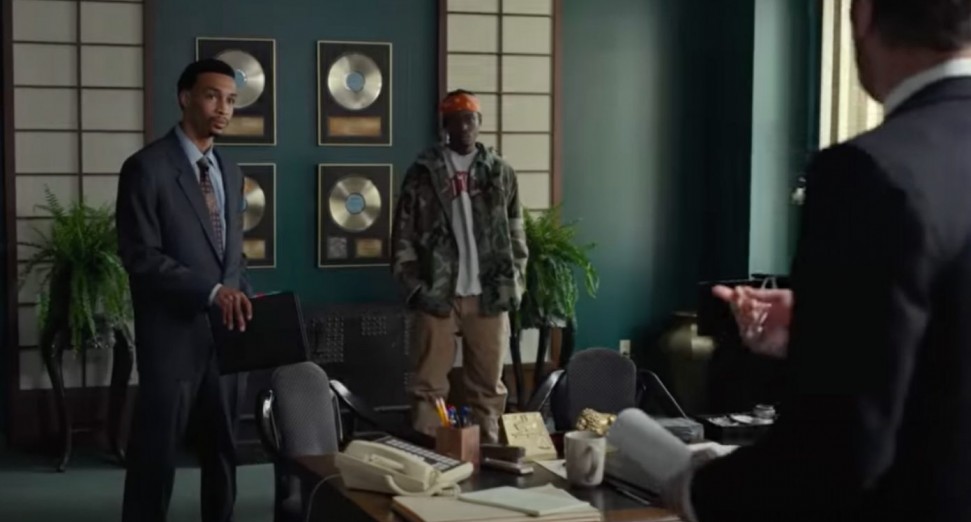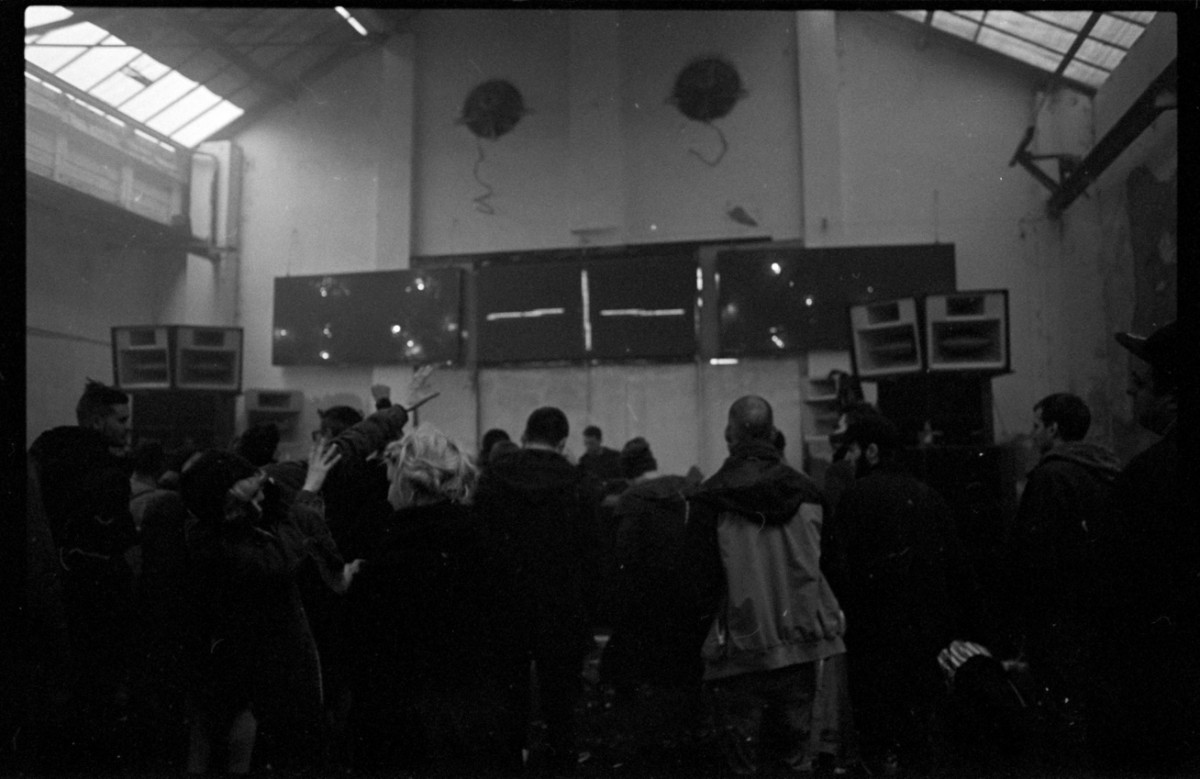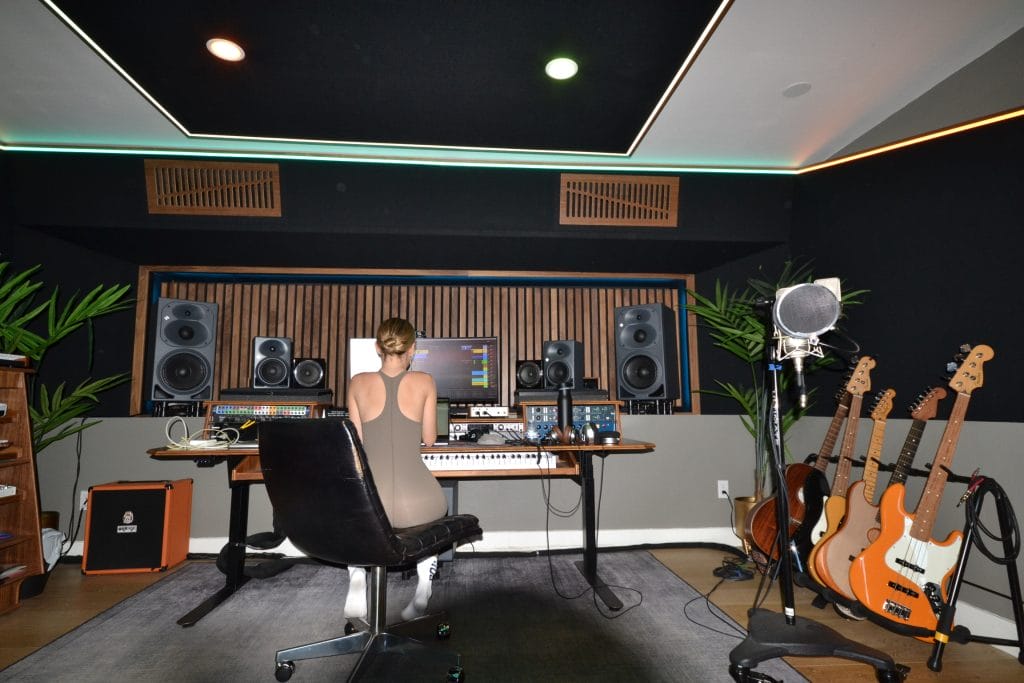
WHIPPED CREAM Talks Vulnerability, Fluidity, and Staying Obsessed Ahead of New Monstercat Anthem “never mine”
Out yesterday, June 26 via Monstercat, “never mine” is the second collaboration between WHIPPED CREAM and BKAYE. Built on haunting vocal loops, ambient sound design, and a club-ready backbone, the record follows their 2024 single “real 4 me” and continues to explore the emotional lane both artists have carved out. With WHIPPED CREAM’s voice and vision at the center, the track feels intimate yet fully geared for dancefloors – a tension that’s become her signature.
In this interview with Magnetic Magazine, WHIPPED CREAM talks about trusting your gut, the freedom of genre fluidity, and why discomfort has been one of her greatest teachers.
“never mine” blends ambient textures, tech house, and emotional vocals into something that feels both personal and club-ready. What was the first idea that sparked this track?
BKAYE and I have actually released a previous song together called “real 4 me,” and it has a very similar vibe to “never mine.” We have a proven track record of working well together, so it definitely came easy to us. I tend to naturally make more melancholic sounding records, and working with BKAYE allows there to be some yin to my yang. I just love working with him because of the balance he adds. He helps keep the record club-ready. This specific song was actually initially sparked by an idea, which was the phrase: “made in LA.”
You have said this track “says everything by saying so little.” How did you approach vocal layering and restraint to carry that emotional weight?
This vocal was actually cut and written within five minutes – I was just vibing. Originally, the lyrics were ‘you were always mine’ in the second half going into ‘you were never mine,’ and it was kind of like I was having a conversation with myself. The song quickly became about a feeling I’ve had before where a certain person is always yours in your heart still, even if they are physically no longer in your life. But, to keep the hooky aspect of the record, we kept it as ‘you were never mine.’
This track feels like a sonic shift from “real 4 me.” How would you compare the creative chemistry between you and BKAYE this time around?
I would say it’s actually quite similar. With this record, we definitely had less versions and edits of it than we did with ‘real 4 me.’ I think with ‘real 4 me’ it was a little more of a struggle to find that perfect final product of the record. But with this one, it definitely flowed more naturally. I feel like we had most of the record done within our initial session.
How do you balance making a track feel emotional without overwhelming the listener, especially in a festival or club show context like “never mine”?
I think when making an emotional dance record, I try to focus primarily on providing hope within the song, whether it’s melodically or sonically within the production. I also think that when you make an emotional song but it’s also house music, you naturally want to move and dance, so a “four to the floor” production style format also always helps. It’s an easy cheat code to keep movement while adding to the emotionality of the record.
Where does “never mine” sit in your live sets right now, and how have audiences been reacting to it?
Recently I’ve been playing it near the end of my sets, and the crowd seems to really like it. I’ve been receiving some lovely messages specifically about that record, so people are seemingly enjoying it. I take that as a good sign, lol. I like leaving people with an emotional record to end the set – I feel like it keeps people dreaming while simultaneously leaving them wanting more.
Your catalog covers house, techno, hip-hop, and cinematic bass music, to name a few. How do you stay rooted in your identity while pivoting across genres?
Well for me, music is a spiritual experience; a song is like a journal entry. I haven’t been able to stick to one genre because I love all kinds of music, and I think that’s the beauty of being a music producer. I am an artist as well, so it’s important that the music I release is fully indicative of me. However, I do shift genres quite frequently based on the timeline of my life, and honestly just how I’m feeling that day. I want my music to fully express me as an artist, and how I’m feeling and what I want to create changes day by day. I try to stay malleable as a result.
When you are writing something outside your usual lane, how do you structure the session to stay creatively fluid without overthinking?
So the other day actually, I was trying to make some form of tech house, but I was attempting to use my own vocal and it just wasn’t working. I don’t typically enjoy writing like bendy / pausey-type hooks. I spent a whole day trying to make it work to collaborate with a certain artist and fit within their mold. I noticed I wasn’t having a ton of fun, and when I’m not having fun, I usually just use that as my indicator to start something new. That’s my method if I feel like I’m overthinking or production on a record is taking too much time. I’ll start a new idea and start fresh with a clean slate.
Your music always feels cinematic — what tools or techniques do you lean on to build that kind of atmosphere?
My love for the band Active Child, my love of cinema, and my love of nature, humanity and connection keeps me tapped into making cinematic music because it’s so universal.
Let’s talk drums. How do you approach programming percussion in a track like “never mine” compared to something grittier and heavier like “u don’t just wanna die”?
For this specific record, when I was in the studio with BKAYE, I pretty much told him: “I want to make a “real 4 me” part two, but leveled up a bit,” and he actually programmed the drums. It’s part of why I knew I wanted him to hop on this record. For “u don’t just wanna die,” that one’s all me. That song is definitely inspired by the early WHIPPED CREAM days. I used to make a lot of footwork, juke, and jersey, and making that record was super nostalgic for me and took me back to when I first started out producing. I really love that record.
As someone who’s also a vocalist, how does that shape your approach to toplines and vocal processing in production?
Singing on my own records definitely adds a new approach, but I view adding my vocals to a song more like adding another layer of an instrument, metaphorically (and literally) adding more of myself to the production. Honestly, I didn’t know I could sing until a couple of years ago, so I feel very blessed to be able to add this additional element to my production.
You have said staying creatively uncomfortable is part of your growth. Can you share a moment where that mindset paid off in a major way?
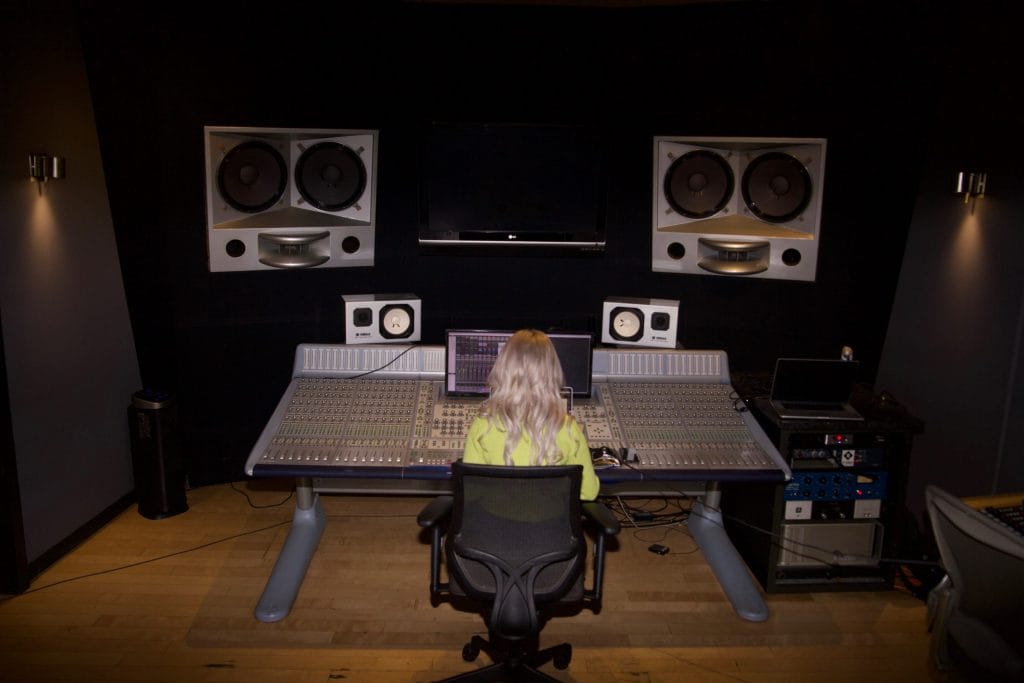
I notice I’ve found most of my progression when I’m uncomfortable. I feel like my whole career has been uncomfortable. The only times I really feel comfortable are when I’m making music or when I’m on stage – everything else does not feel natural to me. I’ve actually never felt like a lot of what comes with this career feels natural to me. It’s a lot of sacrifice, but it has shaped me into the best human I could possibly be and it continues to do that. I’m constantly learning and growing as an artist and also a human being. There isn’t a particular moment that has paid off in a major way; I think it’s been an amalgamation of life experiences and life lessons that have helped me by being dramatically uncomfortable in the moment. To me, that’s how you climb the ladder. Especially in an oversaturated industry, you need to be working harder than the person next to you. But it only really works if you are uncontrollably obsessed because that’s the only way you are actually going to make your mark. You need to love what you do and believe in yourself first.
You are clearly never afraid to switch things up. How do you know when it’s time to reinvent or pivot your sound?
That is such a great question. Honestly, it’s just a gut feeling I have that tells me I need to try something new. I’m always making all kinds of genres, so I’m really just going with the flow of the universe and divine energy.
Do you ever feel pressure to “define” your genre, or do you see that fluidity as your superpower?
No, I definitely don’t feel any pressure whatsoever. Maybe if I started another project with a specific sonic direction, I would try to compartmentalize the genre and vibe so it’s specifically defined. But that’s really it, I’ll likely just keep doing what I’m currently doing under my artist project.
What advice would you give to producers trying to build a catalog that spans multiple styles while staying true to themselves?
That’s a great question. Just be true to yourself. If you know who you are and you’re not making music to impress other people and you’re authentically painting your paint brush the way you want to without caring what others think, then you’re already doing a great job.
Between Careline, your alter ego, and collaborations like this, what can fans expect next as you continue expanding your sonic universe in 2025?
Well, the next wave of records does focus heavily on my voice. It’s super house music focused, but it’s funny because I have so much unreleased music – like sooooo much music (rolls eyes in the back of my head). In a perfect world, I’d release a song every week because there’s just so much music I want to release, it’s actually insane. I’m inspired by a lot and creating so much right now – like even yesterday I made one of my favorite songs to date. So I think: try not to expect anything, but instead, expect everything. My hope for this year is to drop way more music than I ever have before. I’m so excited, and hope you’re excited too.

